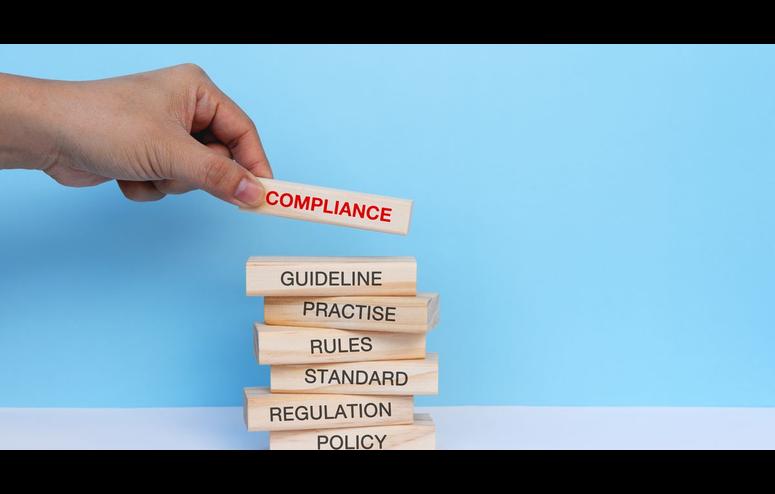Crypto Can Overcome Its Reputation as a Weak Link in Financial Crime. Here's How

The crypto sector is often painted as the weakest link in the fight against financial crime. More recently, it has been accused of posing a risk to financial stability and compromising investor security with its laissez-faire attitude to cybersecurity.
But if you take the temperature of illicit activity linked to the crypto asset ecosphere, it throws up some sharp contradictions.
It is true that crypto remains the payment mechanism of choice for narcotics and other illicit commodities on the darknet, but as law enforcement continues to reinforce its surveillance of these hawkers, such black markets are declining.
Unregulated crypto asset exchanges continue to serve as means for state actors to circumvent barriers in the formal financial system. U.S. courts have just unsealed a memorandum opinion outlining the alleged role of a crypto asset exchange in the processing of some $10 million in payments barred under international sanctions.
But the growth in crypto asset forensic technology is now making it increasingly difficult to cash out criminal funds. Ten million is minute compared to the recovered $3.6 billion linked to the Bitfinex hack. There are other established, less complex methods to launder criminal funds at scale.
Read More: How Not to Run a Cryptocurrency Exchange
Crypto assets get a bad rap, sometimes rightly but often not. Over recent months, the sector has enhanced its reputation by enabling and supporting efforts to raise funds for Ukraine to procure nonlethal equipment and humanitarian aid, and for Afghanistan as much of the war-torn country’s formal financial sector has come to an effective standstill.
In developing nations, more people are using crypto assets to keep their wealth safe from governmental restrictions and unlawful appropriation. Web 3 components, such as non-fungible tokens (NFTs), offer the prospect of supporting marginalized groups, including the victims of online sexual exploitation, by the application of cryptographic solutions that enable ownership by consent.
A burgeoning, healthy and ethical crypto asset industry can help prevent malign activity – and maybe, just maybe, change public and governmental perceptions.
For a first step in this direction, one might look to blockchain specialists Chainalysis’ estimate, earlier this year, that transactions involving illicit wallets represented just 0.15% of cryptocurrency transaction volumes last year. Yet widespread skepticism remains, and machine learning and predictive analytics are not a panacea for malign activity.
Put aside, for one moment, a series of outrageous NFT "rug pulls" and barely concealed market-manipulation schemes. There are reasons to suppose financial crime is less prevalent than other regulated activities, eminently detectable, and therefore preventable.
For example, blockchain analytics can go further and faster than traditional finance to unravel the perpetrators of criminality. It is not flippant to say that, were the blockchain in existence at the time, the Watergate follow-the-money scandal or Bernie Madoff’s giant Ponzi scheme might have been stopped earlier.
Law enforcement, intelligence agencies, policymakers and the private sector are part of the same critical ecosystem fighting financial crime. If the entire system works together, the crypto sector could become a force leader.
How can historical and ongoing concerns be assuaged? Several quick wins come to mind.
The fight against financial crime starts with the implementation of a compliance-focused culture within the crypto sector. By prioritizing compliance as a fundamental pillar of how crypto firms operate, organizations will help change perceptions among regulators, law enforcement and traditional finance alike.
Read More: Are Crypto Assets Securities?
But buy-in must be achieved at all levels within an organization, supported by a strong tone from the top. This partly depends on refining the image of the sector away from "crypto bros" and profit before ethics. Philosophical debates about decentralization will not cut mustard with regulators.
Without such organizational-wide backing for compliance, the best systems, policies and controls will be washed away, heightening the risk of illicit proceeds getting into the system. The crypto asset industry is in a good position to advocate and promote best practices internally, with the external benefit of assuaging broader concerns.
Organizations must actively seek practical solutions to prove their commitment. The sector has the opportunity to make a moral commitment to tackling the personal and societal harms inflicted by financial crime when it is enabled by crypto asset technology – a crypto constitution, if you will.
In its simplest form, this means cultural change implemented by training and awareness building, an informed understanding of financial crime threats and a campaign to develop industry standards.
Start with a strong cross-sector statement outlining the policy (and importantly red lines) for dealing with crypto mixers and privacy coins.
Additionally, consider the opportunities for sharing actionable intelligence with banking partners. This will require support from regulators and established public-private partnerships. Crypto asset service providers could reciprocate by instigating a pilot project testing nonbinding disclosure of information made possible under Section 314(b) of the USA Patriot Act.
A sandbox environment for joint training with law enforcement might stipulate what should happen were an investigation to cross over into the crypto asset domain. This approach would help to address technological challenges, internal anti-money laundering controls and an industry response to high-harm threats such as ransomware.
Consider the inherent advantages open to crypto assets – the immutability of the blockchain, its inherent traceability and a distributed ledger that can withstand criminal efforts to double spend legitimate coins. These built-in advantages should bode well compared to repeated traditional finance scandals. With goodwill (on all sides), such quick wins might be building blocks for that bridge of trust.
